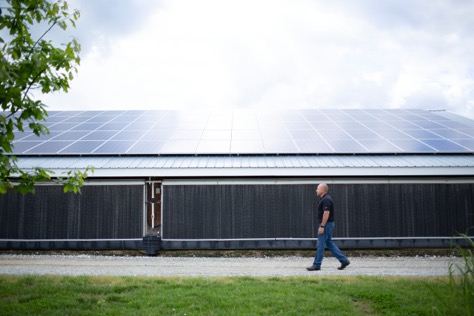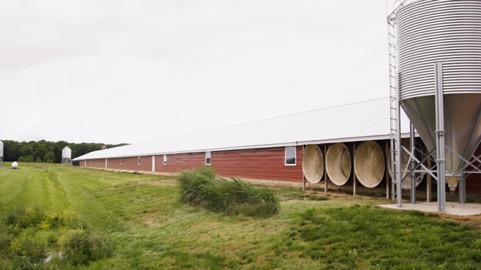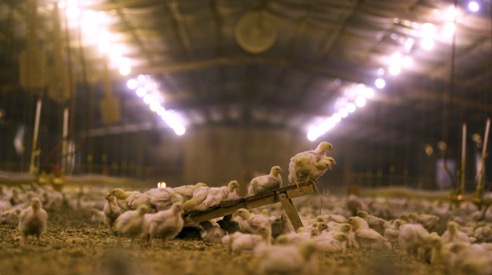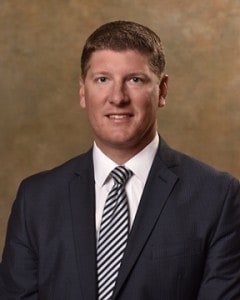How Chicken Farmers Reduce Energy Use
Energy saving innovations and best practices help chicken farmers limit the environmental impact and financial costs of running a successful farm, all while benefiting the overall wellbeing of their flock. “What we’re doing is constantly progressing and changing,” says Terry Baker, a chicken farmer from Delaware.

Terry’s farm is now entirely solar, generating enough energy to power the entire farm. The solar panels are attached to the top of the chicken houses for optimal exposure, reducing energy use and generating power. “We put in a 122KW system– just this past fall,” says Terry. “So, my farm actually generates the same amount of power that it would use in the year.”

Janice Vickers installed upgraded tunnel fans on her chicken houses, simultaneously regulating the chicken’s environment and boosting energy efficiency through a high-tech controller system. “It’s a lot better for the bird and farmer,” says Janice. “You don’t have to worry about drastic changes in temperature like you used to.”

LED bulbs on Michelle Chesnik’s farm help her realize a 25-35% savings in energy. Next year, Michelle is expecting even more savings. “The birds stay just as happy and healthy with the new bulbs,” shares Michelle. “By using energy efficient lightbulbs, we lower our own cost while taking better care of the environment.”
Want more information on how sustainable innovations are being implemented on chicken farms? Be sure to read up on how Terri Wolf-King uses solar energy to power her farm.
Meet the author, Tom Super, Senior Vice President of Communications at the National Chicken Council.
Super brings 16 years of combined experience in strategic communications, public policy, politics and meat and poultry issues management to NCC’s senior management team. He is responsible for day-to-day media relations, media outreach, social media management and strategic communications planning to supplement the National Chicken Council’s legislative, regulatory and public affairs efforts.
Prior to his joining the National Chicken Council, Super spent three and a half years at the American Meat Institute, most recently as vice president of public affairs. He previously spent six years at Greener and Hook LLC, a Washington-based strategic communications consulting firm where his focus was on planning and executing communications strategies and delivering strategic communications and media relations counsel to corporations, trade associations, ad-hoc organizations, non-profits and political candidates at the local, state and federal levels. Super began his career in Washington, D.C. on Capitol Hill as a press assistant and legislative correspondent for U.S. Senator John W. Warner (R-Va.).
A graduate of Washington & Lee University, in Lexington, Va., Super earned his bachelor of arts degree in public policy.
